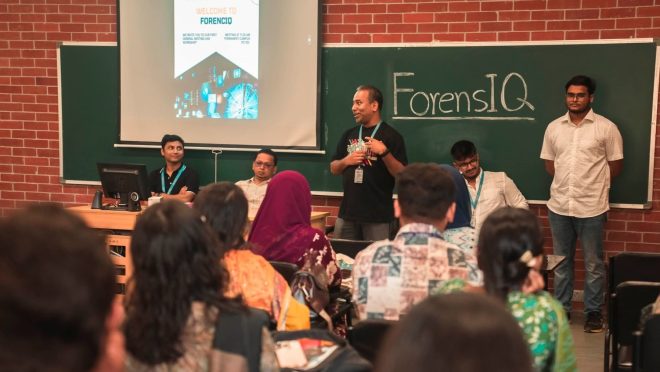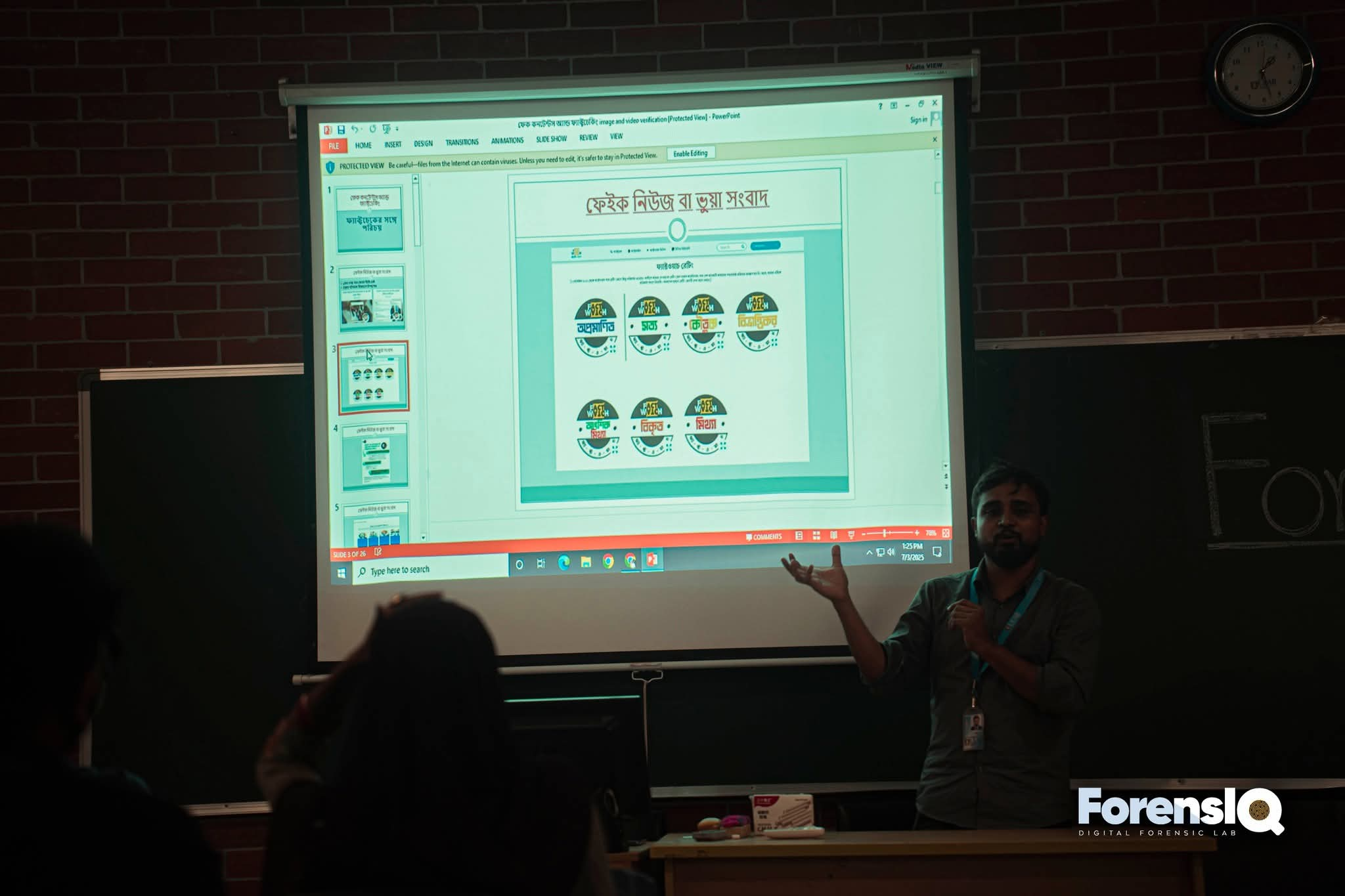How students of ULAB conduct fact-checks through digital forensic lab ‘ForensIQ’
How students of ULAB conduct fact-checks through digital forensic lab ‘ForensIQ’

At the University of Liberal Arts Bangladesh, students are getting hands-on training in spotting fake news and verifying digital content through ForensIQ, a student-driven digital forensic lab that equips them to tackle online misinformation and become skilled digital investigators.
Training the next digital investigators
A digital forensic lab is a specialised space where experts examine evidence from photos, files, and devices to uncover the truth and present it in a court-ready format. ForensIQ, as such a lab, goes beyond simple fact-checking to focus on courtroom-ready evidence.
To illustrate the kind of work ForensIQ does, the present director, Shibly Sadik Sifat, mentioned, “If a leaked phone call allegedly shows former prime minister Sheikh Hasina ordering the use of lethal weapons, how can we verify and present it in court? Through proper digital forensic methods that ensure the integrity of the recording.”

“Similarly, when Sheikh Hasina claimed Abu Sayed died because of bricks and sticks, Forensic Architecture created a 3D model of the situation using data to prove that it was, in fact, a gunshot,” he continued. Such cases show why training in digital evidence collection and presentation is critical.
Hands-on learning with real impact
Unlike traditional classrooms, ForensIQ focuses on experiential learning. Students engage in real-world simulations, fact-checking exercises, and AI-based investigations. They learn how to verify information, identify manipulated content, and create accurate multimedia materials. This approach bridges technical expertise with ethical responsibility, preparing students to respond effectively in a world where digital manipulation can shape both public opinion and legal outcomes.
Expert guidance and collaboration
The lab works closely with Fact-Watch, ULAB’s fact-checking initiative, while expanding beyond fact-checking into courtroom-ready digital forensics. Experienced instructors mentor students on both technical processes and ethical frameworks, ensuring a balance between investigative rigour and responsible practice.
Community outreach and impact
A key feature of ForensIQ is its commitment to community engagement. Students are encouraged to design workshops, campaigns, and educational materials to promote media literacy beyond ULAB. This outreach helps cultivate a culture of digital responsibility and informed citizenship among the wider youth population, empowering students to become leaders in the fight against misinformation.
A timely initiative
As misinformation and digital manipulation continue to shape public discourse, ForensIQ positions ULAB at the forefront of forensic media education in Bangladesh. The lab not only builds technical proficiency but also fosters integrity, accountability, and a culture of truth-seeking, skills essential for the next generation of media and legal professionals.
“In this post-truth era, students, especially journalism students, need to learn how to collect, analyse, and present digital evidence to legal proceedings. From fact-checking to digitally recreating a crime scene, we need both experts and media-literate people to reduce the consumption of misinformation and disinformation. At ForensIQ, we are trying to achieve exactly that,” said Shibly.
With ForensIQ, ULAB sets a benchmark in student-led digital forensics in Bangladesh, preparing students to analyse digital media responsibly and become informed consumers as well as defenders of truth.


